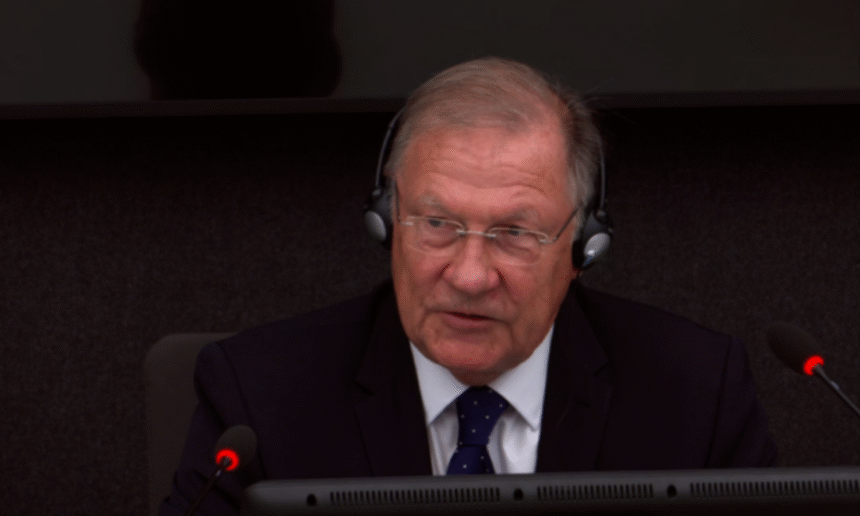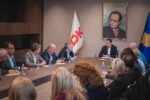Former British diplomat John Stewart Duncan, called by the defense of former President Hashim Thaçi, is giving his testimony before the Special Chambers in The Hague. He spoke about the political and social circumstances of Kosovo Albanians during the 1990s, as well as cultural differences with Albanians from Albania.
“Kosovo Albanians were subjected to apartheid during Milosevic’s rule. They were excluded from participation in governance, and gradually this led to the ethnic cleansing that we all witnessed,” Duncan stated, describing the situation as a systematic oppression of an entire people.
He also spoke about the perceived differences between Kosovo Albanians and those from Albania:
“They were different from Albanians in Albania. In my view, they had not lost affection for one another. They were closely connected. I am speculating, please understand that this is just my opinion.”
Duncan, who previously served as an advisor to NATO General Wesley Clark, also highlighted cultural divisions within Albania:
“Albanians in Albania are mainly divided into three regions: the North, influenced by blood feuds and clans – this dominates the history and culture of Albania; Central Albania is somewhat mixed; and the South is more influenced by Greece.”
According to him, these elements also influenced Kosovo Albanians:
“Most Kosovars come from Northern Albania; the concept of honor, besa. I don’t know how to explain it… blood feuds, the Kanun have been the basis of society. It is how they perceived society.”







